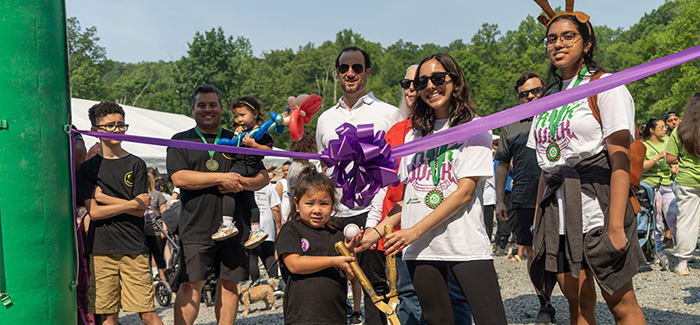Can Counting Steps Help Fight RA Fatigue?
Research shows using a device to track steps may help ease rheumatoid arthritis-related fatigue.
Updated Feb. 14, 2024
The key to helping people with rheumatoid arthritis (RA) fight fatigue may be — literally and figuratively — a walk in the park. Researchers from University of California, San Francisco (UCSF) found that modest exercise decreased fatigue and that using a device to keep track of their steps — plus a bit of guidance — helped increase the amount people exercised. They presented their findings at the 2015 American College of Rheumatology Annual Meeting.
“Fatigue is one of the top-rated concerns; it has multiple sources and causes. We know from earlier studies that physical inactivity is associated with fatigue,” says lead study author Patricia Katz, PhD, a professor of medicine and health policy at UCSF. “We wanted an intervention that is simple, exportable and has few barriers to implementation.”
Katz and her team measured the activity level of 96 people with RA for one week and had them fill out questionnaires. Then the participants were randomly divided into three groups. One group was educated on the need to be active. The second group was given a traditional pedometer and a diary to record their daily steps. The third group got a pedometer, a step diary plus personalized daily step targets based on each person’s starting activity level and increased by 10% every two weeks. Groups two and three also got phone calls every two weeks to collect the information from their step diaries.
After 21 weeks, both groups using pedometers had significantly increased their average daily steps. The pedometer group increased its physical activity by an average of 87% over its starting level, and the pedometer group with step targets increased its physical activity by an average of almost 160%. By comparison, the group that received only education saw no change in activity levels.
“People often don’t know what to do if you just say, ‘You need more exercise,’” says Katz. Using a device to track your activity, whether it’s a simple pedometer, fitness tracker, fitness app or something else, can be powerful. Once they see the difference they are often surprised at how sedentary they have been, she adds.
Katz's team also found a direct correlation between an increase in steps and a decrease in fatigue levels: both pedometer groups had meaningful decreases in self-reported fatigue levels, with the pedometer group that had targets reporting the greatest change. Participants reported no increase in pain or disease activity as a result of the increased physical activity.
“That was important because sometimes people are afraid they will have problems, and we didn’t see that,” says Katz. “Moving is good for you. People who are more active tend to have healthier cardiovascular profiles. They are less obese. They have more energy. There’s an association with lower levels of depression.”
It may seem counterintuitive that physical activity helps fight fatigue, but Katz says research is clear.
“For years the recommendation for patients with fatigue got was to rest, and that wasn’t really working very well for them,” Katz explains. “As you become less active you lose cardiovascular fitness and muscle strength. Resting basically shuts your body down.”
Katz has done additional studies that found fatigue isn’t just a result of RA disease activity; it is compounded by a variety of factors, including inactivity, depression, obesity and poor sleep. She says research shows that increasing physical activity can positively affect all those factors, and walking is one of the easiest and most accessible forms of physical activity.
“A lot of people don’t want to go to a gym. It’s expensive or they can’t find a program they like. We wanted something people can do on their own,” Katz says. “Assuming people don’t have any prohibitions from their physician, are able to walk and have a safe place to walk, they can just start walking.”
And using a step counter or fitness tracker can help get them and keep them motivated.
Observational Arthritis Foundation Internet Study (OASIS)
Walk to Cure Arthritis
Get Ready to Move
Whether you're an arthritis warrior yourself or care about someone who is, sign up and raise funds for Walk to Cure Arthritis.
Find a Walk
Stay in the Know. Live in the Yes.
Get involved with the arthritis community. Tell us a little about yourself and, based on your interests, you’ll receive emails packed with the latest information and resources to live your best life and connect with others.
